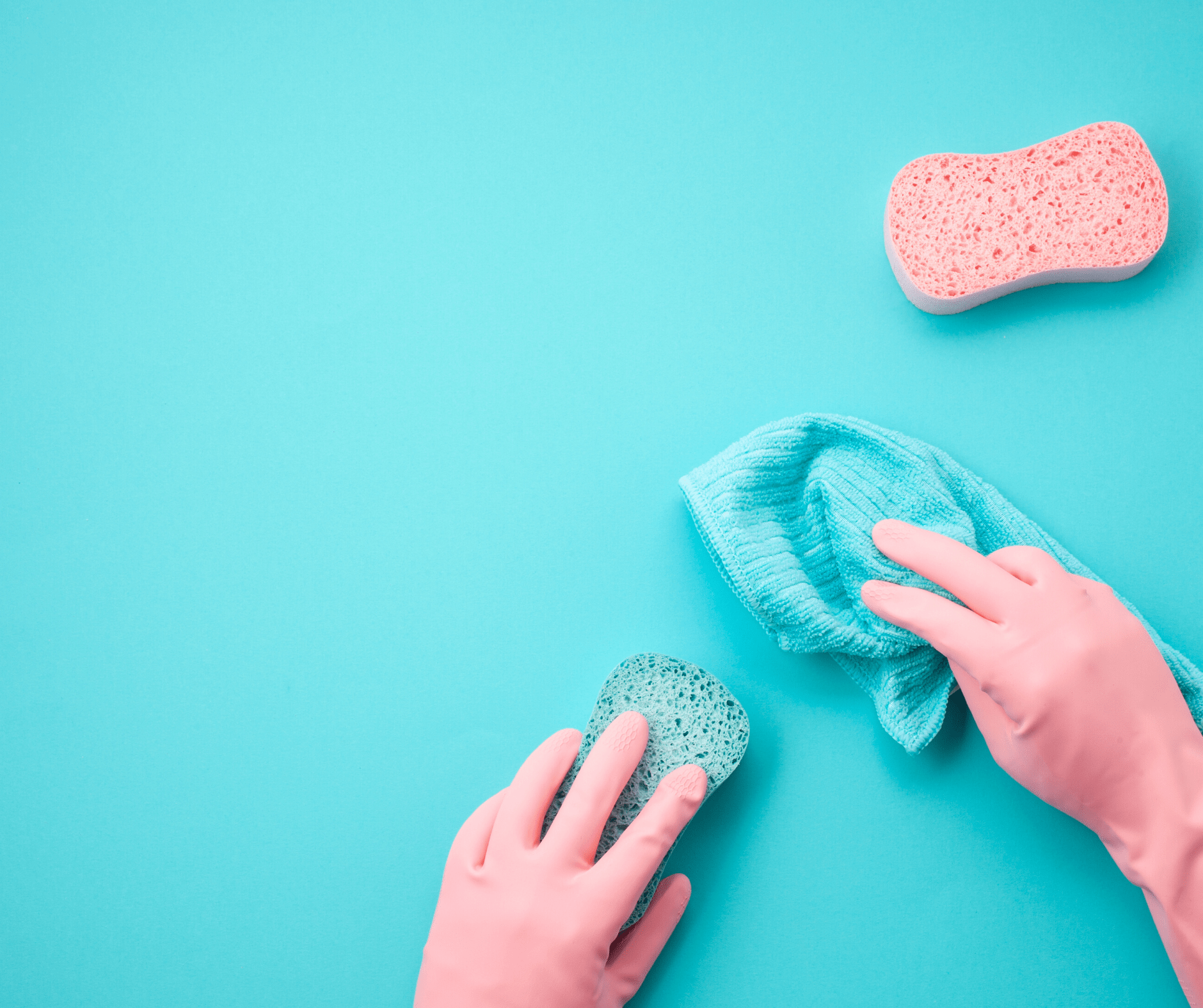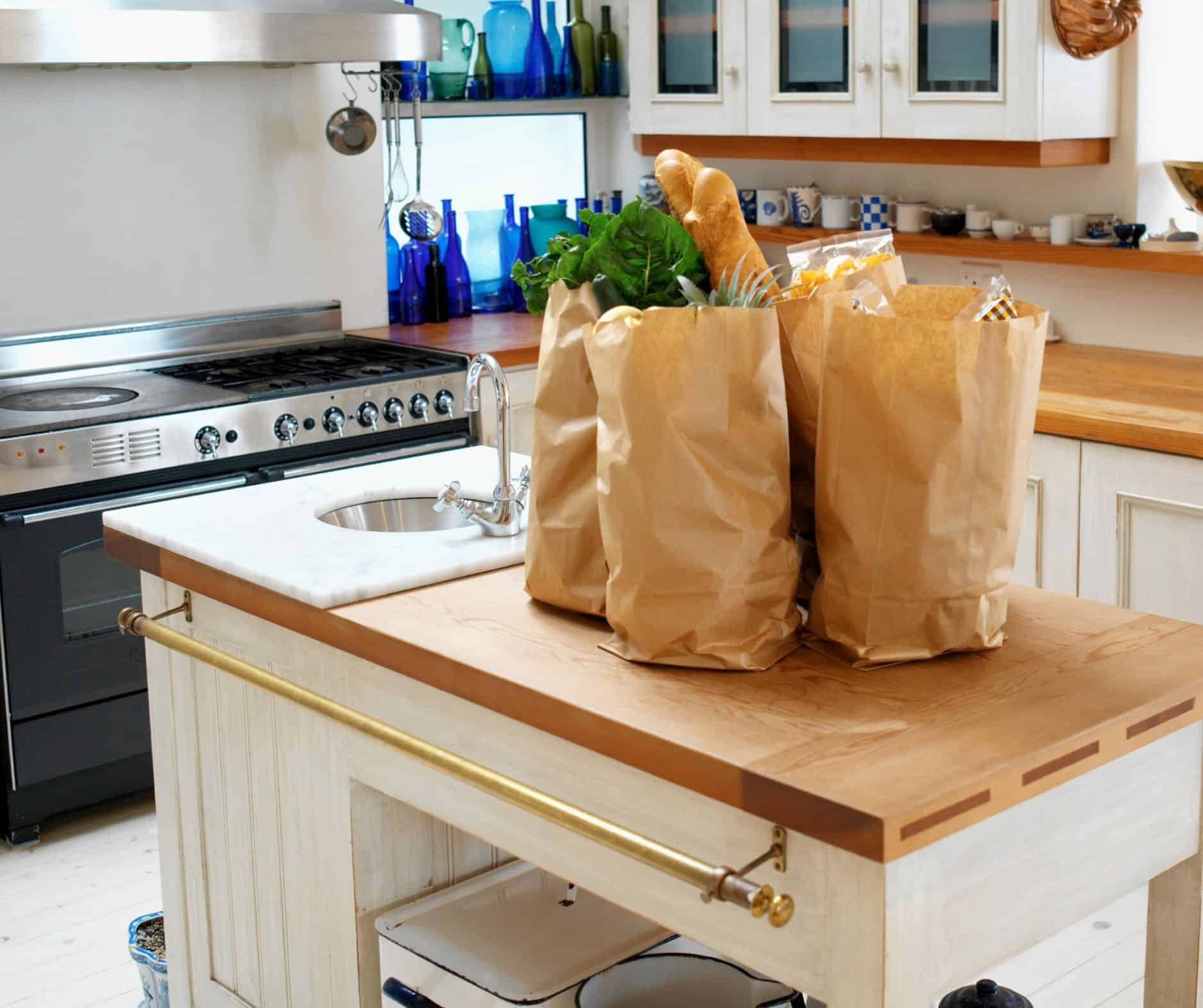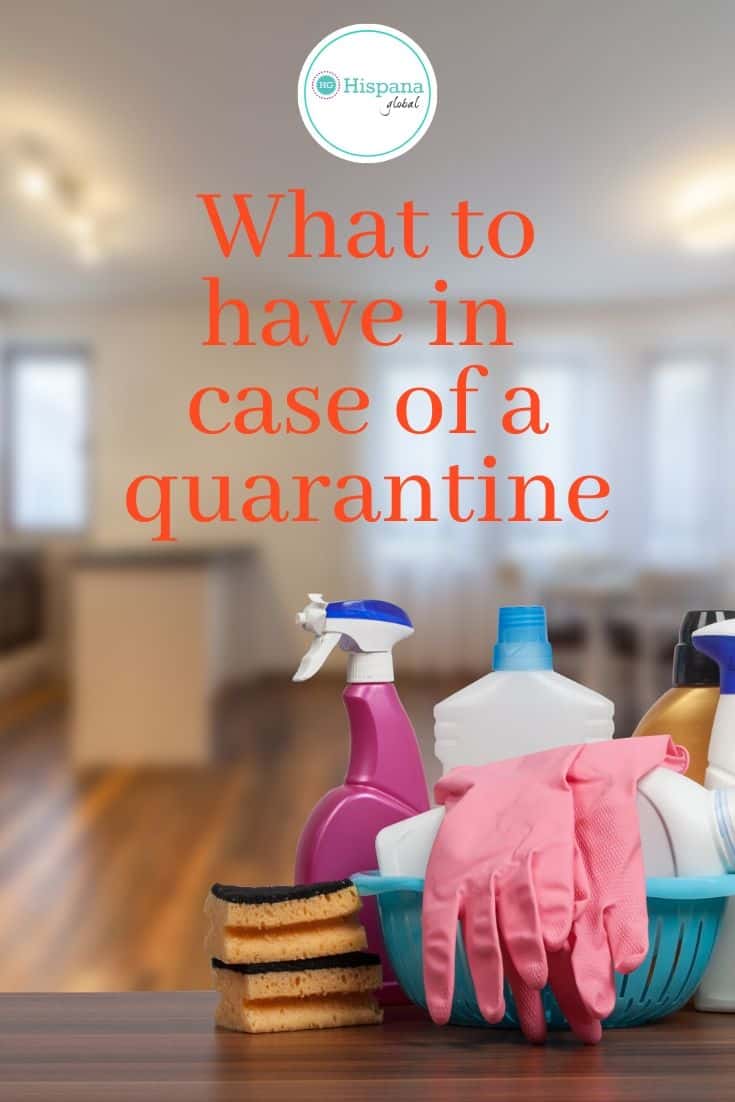How to prep and what to have in case of a quarantine or lockdown
Regardless of whether you think the fear of the novel Coronavirus is real or overhyped, experts are saying there is a good chance many of us might face a quarantine, lockdown or shutdown. That means there are great chances of being exposed to COVID-19 and perhaps having to stay for days in our homes.
 Although I believe we shouldn’t panic, the CDC is recommending Americans over 60 years of age start making preparations. Personally, I would extend that to anybody who has a compromised immune system, has had pneumonia or is recovering from a major illness. Pregnant women or those who just had an infant should also take special precautions. Many people are forgetting we have friends and loved ones with chronic diseases, lung or heart problems that are considered a high-risk population for complications.
Although I believe we shouldn’t panic, the CDC is recommending Americans over 60 years of age start making preparations. Personally, I would extend that to anybody who has a compromised immune system, has had pneumonia or is recovering from a major illness. Pregnant women or those who just had an infant should also take special precautions. Many people are forgetting we have friends and loved ones with chronic diseases, lung or heart problems that are considered a high-risk population for complications.
It’s not a matter of going crazy and stockpiling supplies, but in case you or a family member is quarantined there are several things you will need. I made a basic list in case it helps you organize. The time to plan is now, not when you are dealing with an emergency.
READ ALSO: 7 Foods That Boost Your Immune System
List of things you may need in case of a quarantine
- Any medications you take on a regular basis or might need in the next 3 weeks. Consider signing up for mail order services, if available for your prescription meds. This includes nebulizers and any medical equipment you need to manage chronic conditions.
- Over the counter medications you may need to treat the symptoms of the novel coronavirus. Ask your healthcare provider for specific recommendations. At the very least, you will need an analgesic/fever reducer, and perhaps cough drops or cough syrup. Keep in mind that OTC cold medications might not be safe for those taking certain heart medications.
- Food supplies for 14 days per member of your family. You can also freeze meals so they are easy to heat up and serve in case you get sick.
- Hand washing is still the best way to prevent the spread of covid19 and most illnesses, so have soap in stock.
- Cleaning supplies such as bleach, paper towels, disinfectant spray, and laundry detergent. Rubbing alcohol is also great to have, but I know it’s hard to find. No need to stockpile!
- Disposable plates, utensils, and cups in case somebody in your household gets sick.
- Disposable gloves.
- Lip balm and hand cream.
- Pet supplies if applicable.
- If you wear disposable contact lenses, keep at least a month’s supply.
- Entertainment material: streaming services, books, coloring books, etc.
- Supplies for babies or young children (wipes, formula, diapers, snacks, activities)
- Any other medical and first care supplies you may need if you are stuck at home.
Expert cleaning tips to sanitize your home

Surfaces
- If surfaces are dirty, they should be cleaned using a detergent or soap and water prior to disinfection.
- For disinfection, diluted household bleach solutions, alcohol solutions with at least 70% alcohol, and most common EPA-registered household disinfectants should be effective.
- Diluted household bleach solutions can be used if appropriate for the surface. Follow manufacturer’s instructions for application and proper ventilation. Check to ensure the product is not past its expiration date. Never mix household bleach with ammonia or any other cleanser. Unexpired household bleach will be effective against coronaviruses when properly diluted.
- Prepare a bleach solution by mixing:
- 5 tablespoons (1/3rd cup) bleach per gallon of water or
- 4 teaspoons bleach per quart of water.
- Products with EPA-approved emerging viral pathogens claimsare expected to be effective against COVID-19 based on data for harder to kill viruses. Follow the manufacturer’s instructions for all cleaning and disinfection products (e.g., concentration, application method and contact time, etc.).
- For soft (porous) surfaces such as carpeted floor, rugs, and drapes, remove visible contamination if present and clean with appropriate cleaners indicated for use on these surfaces. After cleaning:
- If the items can be laundered, launder items in accordance with the manufacturer’s instructions using the warmest appropriate water setting for the items and then dry items completely.
- Otherwise, use products with the EPA-approved emerging viral pathogens claims (examples at this link) that are suitable for porous surfaces
Linens, Clothing, and Other Items That Go in the Laundry
- Do not shake dirty laundry; this minimizes the possibility of dispersing virus through the air.
- Wash items as appropriate in accordance with the manufacturer’s instructions. If possible, launder items using the warmest appropriate water setting for the items and dry items completely. Dirty laundry that has been in contact with an ill person can be washed with other people’s items.
- Clean and disinfect hampers according to guidance above for hard or soft surfaces.
Remember to also clean and disinfect your iPhone and iPad.
Know the symptoms of COVID-19 or the novel Coronavirus
Watch for symptoms and emergency warning signs recommends the CDC.
- Pay attention for potential COVID-19 symptoms including, fever, cough, and shortness of breath. If you feel like you are developing symptoms, call your doctor.
- If you develop emergency warning signs for COVID-19 get medical attention immediately. In adults, emergency warning signs*:
- Difficulty breathing or shortness of breath
- Persistent pain or pressure in the chest
- New confusion or inability to arouse
- Bluish lips or face
Whether you end up facing a quarantine or not hopefully these tips and list will help you feel prepared. Also, remember not to judge others. Many live with chronic diseases or immune problems that we don’t necessarily know about.








